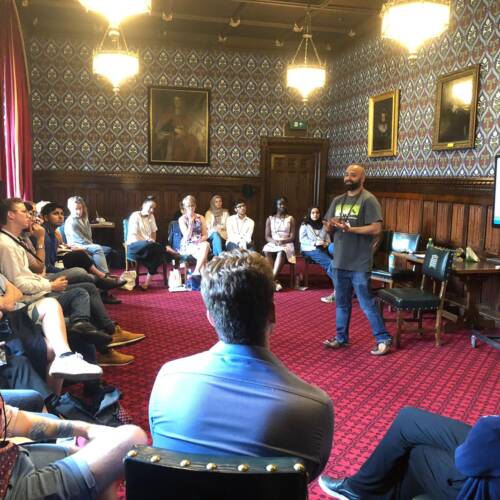
Further Despair Threatens Palestine in the Next Chapter of it’s Conflict with Israel
26 Jun 2020Benjamin Netanyahu has been increasingly vocal of his ambitions to expand Israel’s territory and sovereignty in the recent year, and a U.S-supported plan to annex a chunk of the West Bank could hint at a materialisation of such sentiments as he is set to take the plan to his cabinet in July.
The plan to be proposed sets out to declare control of over 30% of the West Bank territory including the Jordan Valley and areas of which various Israeli settlement blocs are placed.
After three recent Israeli elections ending in stalemate, incumbent Prime Minister Benjamin Netanyahu has formed a unity government with Benny Gantz, his closest competitor in all three elections. Though Gantz managed to almost defeat Netanyahu, managing to harness support from left-wing voters, those votes might prove to be in vain as Gantz’s ambiguity surrounding his support of a West Bank annexation has now morphed into an outright signal of approval. Though Gantz has walked a tightrope on the issue for quite some time, Netanyahu could probably cross him off the list of potential obstacles to such an operation.
One obstacle however, to bluntly put it, is international law. And with that comes international condemnation. The Secretary-General of the United Nations, Antonio Guterres, has already reiterated this, describing Israel’s plans as a “watershed moment” that will constitute “a most serious violation of international law.” Multiple countries in the European Union are also calling for economic sanctions to follow from a move that could constitute a serious blow for Palestinian self-determination and prospects for statehood. Additionally, earlier on this year, 127 British politicians wrote to Boris Johnson and the Foreign Secretary to also demand sanctions on Israel in the event of an annexation.
Regional stability might also be a consideration for Netanyahu, with a peace agreement with Jordan hanging in the balance and renewed unrest with groups like Hamas an almost certainty. Leaders of both parties have expressed grave concerns and hinted at conflict to follow.
However, the United States and their current role might prove to be an effective counterbalance to these obstacles. It is most probably the case that U.S support is conditional on Israel’s plan conforming to Trump’s own plan, but with the American election looming in November, this is certainly the time for Netanyahu to act quickly with proceedings.
Quite so, Donald Trump hasn’t been one to conceal his animosity with Palestine and Palestinians. By slashing aid, cutting diplomatic ties and declaring Jerusalem as the capital Israel, there isn’t much Trump hasn’t done under his agreeable powers to delegitimise and suppress Palestine’s integrity. Therefore, ultranationalists in Israel will see an opportunity.
The Trump Peace plan, announced by the President in January, was rejected by Palestine as it strongly favours Israel by giving them the go-ahead to annex their West Bank settlement territory and other strategic parts of the area. What’s then left of Palestine afterwards will become a demilitarised state, according to the plan.
The building of Israeli settlements in the West Bank, of which Netanyahu wants to further substantiate through his annexation, are deemed illegal under international law, and the incremental growth of such neighbourhoods, and the roads and infrastructure that comes along with them, has carved up Palestinian territory and squeezed the 2.5 million Palestinians residing there into urban enclaves. The current U.S administration has declined to accept the consensus of the rest of the world that these settlements violate any international law.
Some have suggested that once Israel annexes their part of the West Bank, this will mean the possibility for territorial concessions to be made in Palestine’s favour, due to the state being demilitarised under Trump’s plan and the goal of Israeli regional security from territorial consolidation being achieved. Those to the right of Netanyahu, however, would most probably disagree with the possibility of any sought of concession that wouldn’t strengthen the Israeli state.
Concessions, like everything under the banner of this long and drawn-out peace process, will be interpreted in terms of Israeli security, and Israeli security alone.
And so, Israel is making territorial concessions, but not the concessions Palestine had in mind. The annexation plan includes carving out specific towns already under Israel’s control and handing them over to the Palestinian Authority (PA). These towns, various commentators argue, are being handed over specifically because their Israeli inhabitants aren’t Jewish. Netanyahu’s plan, therefore, should not just be seen as an operation of outward expansion, but also a demographic ambition in support of a Jewish state.
Just how and when Israel will execute this plan is uncertain. The roles and actions of Benny Gantz, due to be Israeli Prime Minister late next year, and Joe Biden, a candidate for the American presidency this November, will be significant in Netanyahu’s confidence in his ambition.















